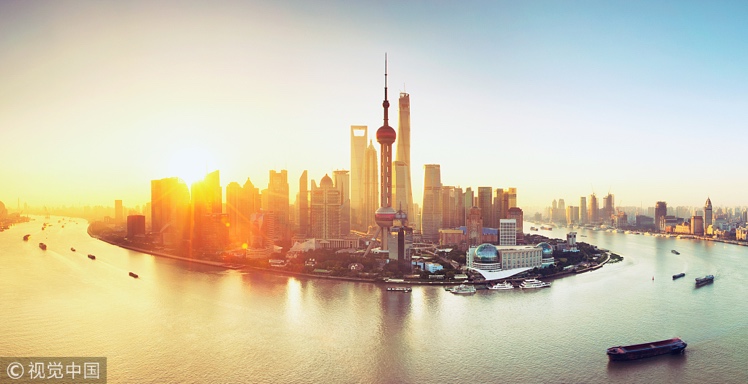
File photo of Shanghai. (Photo: VCG)
The Shanghai Municipal Committee’s proposal to boost the city’s urban energy level and core competency was approved on Wednesday.
The committee emphasizes on strengthening Shanghai’s core functions and promotes breakthroughs in five major areas: economy, finance, trade, shipping, and technology innovation. The committee also plans to reach new heights in system innovation, opening up, brand building, entrepreneurship, global networking, development platforms, talent gathering, and quality of life.
The central idea of this proposal is to plan the roadmap from now until 2035 to make Shanghai a global city of excellence. On the 40th anniversary of reform and opening up in China, what is Shanghai’s development direction and ambition?
Maintain high standards, strive to be first class
Shanghai Municipal Committee deputy secretary Kang Xuping said that “an excellent global city means that there is always a key capacity for long-term sustainability, that is, rising urban energy levels and core competencies.”
In 2017, the Shanghai financial market turnover amounted to 1428 trillion RMB. To enhance the Shanghai International Financial Center, the committee must enlarge the scope of the market, channel in overseas investors, connect with international financial markets, and promote “Shanghai gold” and “Shanghai oil” as global resources.
Increase economic density, widen resource capacities
Shanghai’s GDP was 3 trillion RMB in 2017, a significant gap with cities such as New York. The Shanghai per square kilometer GDP is 470 million RMB, while New York’s is 1.14 billion US dollars. Shanghai’s economic wealth is not evenly distributed, with development zones reaching 15.4 billion RMB per square kilometer while low output zones are at billion RMB per square kilometer.
Shanghai aims to increase its technological innovation and achieve breakthroughs in science to become a global powerhouse for new ideas, technologies, and industries. However, data shows that the current conversion rate of Shanghai science and technology achievements is only 30%, less than half of that of developed countries.
Focus on comparative advantage
Shanghai’s upgrade of urban energy levels and core competitiveness is not exhaustive; each new breakthrough is focused on a comparative advantage, aiming for long-term sustainability and uniqueness.
“A global city is not an almighty city,” says Zhou Zhenhua, president of the Shanghai Economic Society. Zhou said that “the limitation of urban space shows that not all advantages are of core competitiveness, so we need to choose the best areas of development for Shanghai.”
(Compiled by Wang Zitong)


